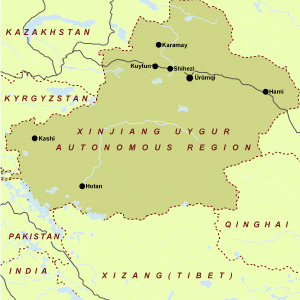Small causes – large effects
Updated on 05 April 2024
Recent developments have, once more, proven the old adage that “small causes may have large effects”.
The self-immolation of Mohamed Bouazizi on 17 December 2011 led to the ousting of President Zine El Abidine Ben Ali 28 days later on 14 January 2011. Egypt was engulfed by the same spirit, and rid itself of Hosni Mubarak. The protests inspired similar actions throughout the Arab world; the Egyptian revolution began after the events in Tunisia and also led to the ousting of Egypt’s longtime president Hosni Mubarak and a full-scale civil war in Libya that led to the ousting and death of Muammar Gaddafi; furthermore, uprisings in Bahrain, Syria and Yemen and major protests have taken place.
The burning of discarded books – among them copies of the Koran – at the US airbase in Bagram, Afghanistan, before 21st February 2012 may be the next “small” event having “large” effects. The groundswell of revolt has discredited American official assertions that after a decade of war “pacification” was finally making progress. I sense here a psychological turning point – which could create another pole of Islamic revolutionary ardor.
Afghanistan is the center of a large region full of conflicts. Adjacent Pakistan has been traumatized by the war, and faces tensions Baluchistan – an ethnic area that reaches out into Iran and Afghanistan; Punjab and Sind are far from stable. And then there is the ever festering problem of Kashmir poisonings the relations with India.

My next are of “interest” is the Xinjiang Uyghur Autonomous Region, the western-most region in the People’s Republic of China, where Uyghurs, a Turkic-speaking ethnic group live – at 45% of total population they are (still) the relative majority, but the Han (41%) will soon reach parity. An estimated 80% of Xinjiang’s Uyghurs live in the southwestern portion of the region, the Tarim Basin, close to both Pakistan and Afghanistan. Kashgar is the most important town there – just today 20 persons were killed in conflict. Outside of China, significant diasporic communities of Uyghurs exist in the Central Asian countries of Kazakhastan, Kyrgyzstan, and Uzbekistan. Smaller communities are found in Afghanistan, Pakistan, and Turkey.

A chaotic oscillation may emerge (once more) between the Middle East and the region around Afghanistan – threatening to engulf large swaths of the continental Asia’s Islamic world. What will emerge is anyone’s guess.
For the first time in this century all the “great powers” have “vital security interests” in the same region. If they don’t (yet) have any, they welcome the opportunity to spoil everybody else’s game. Indigenous religious movements are vying for supremacy, and have the money to back their version of fervor. Large ethnic groups are trying to transform themselves into states. There are masses of unemployed young all over, ready to express their disaffection with the conditions in which they live.
No one could have predicted the specifics of history – we are rushing once more toward a “path-dependent outcome”. Be prepared for “small events” and “unique personalities” to shape – or destabilize – the future.
Can desperate diplomacy work its magic? I’m not sure: the number of state actors as well as ethnic groups involved is large and their interests disparate; all are ongoing jockeying for position and shifting alliances; and the undertow of resentment, religion and nationalism among the masses may carry everything out to a sea of troubles…


Leave a Reply
Want to join the discussion?Feel free to contribute!